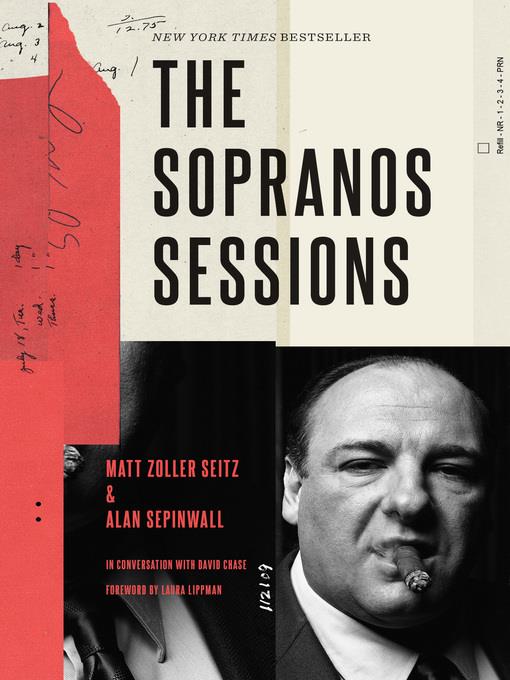
The Sopranos Sessions
کتاب های مرتبط
- اطلاعات
- نقد و بررسی
- دیدگاه کاربران
نقد و بررسی

Twenty years after The Sopranos debuted on HBO and mob boss Tony Soprano became a household name, TV critics Seitz and Sepinwall offer the ultimate postmortem of the show that revolutionized television and ushered in a wave of small-screen antiheroes. They approach their subject with the rigor of a literature professor expounding on Madame Bovary, or Tony's psychiatrist Jennifer Melfi probing the depths of her troubled patient's psyche. Episode by episode, lively essays mull symbolism, unearth obscure references, and pose existential questions. Casual viewers may tire of the meticulous analysis (and copious footnotes), but devotees will be awestruck. Just as The Sopranos elevated the medium of television, Seitz and Sepinwall raise the status of TV writing to new heights. They debate the ambiguous final scene and engage in insightful interviews with creator David Chase, who makes clear his disdain for closure and his delight at subverting audience expectations. A collection of the authors' Sopranos coverage for the Newark Star-Ledger caps off the book. VERDICT For uberfans who still argue over whether Tony made it out alive, wonder what became of the Russian, and eagerly await the prequel.--Mahnaz Dar, Library Journal
Copyright 1 Library Journal, LLC Used with permission.
November 15, 2018
Everything you ever wanted to know about America's favorite Mafia serial--and then some.New York magazine TV critic Seitz (Mad Men Carousel: The Complete Critical Companion, 2015, etc.) and Rolling Stone TV critic Sepinwall (Breaking Bad 101: The Complete Critical Companion, 2017, etc.) gather a decade's worth of their smart, lively writing about New Jersey's most infamous crime family. As they note, The Sopranos was first shot in 1997, helmed by master storyteller David Chase, of Northern Exposure and Rockford Files renown, who unveiled his creation at an odd time in which Robert De Niro had just appeared in a film about a Mafioso in therapy. The pilot was "a hybrid slapstick comedy, domestic sitcom, and crime thriller, with dabs of '70s American New Wave grit. It is high and low art, vulgar and sophisticated." It barely hinted at what was to come, a classic of darkness and cynicism starring James Gandolfini, an actor "obscure enough that, coupled with the titanic force of his performance, it was easy to view him as always having been Tony Soprano." Put Gandolfini together with one of the best ensembles and writing crews ever assembled, and it's small wonder that the show is still remembered, discussed, and considered a classic. Seitz and Sepinwall occasionally go too Freudian ("Tony is a human turd, shat out by a mother who treats her son like shit"), though sometimes to apposite effect: Readers aren't likely to look at an egg the same way ever again. The authors' interviews with Chase are endlessly illuminating, though we still won't ever know what really happened to the Soprano family on that fateful evening in 2007. "It's not something you just watch," they write. "It's something you grapple with, accept, resist, accept again, resist again, then resolve to live with"--which, they add, is "absolutely in character for this show."Essential for fans and the definitive celebration of a show that made history by knowing the rules and breaking every one of them.
COPYRIGHT(2018) Kirkus Reviews, ALL RIGHTS RESERVED.

























دیدگاه کاربران